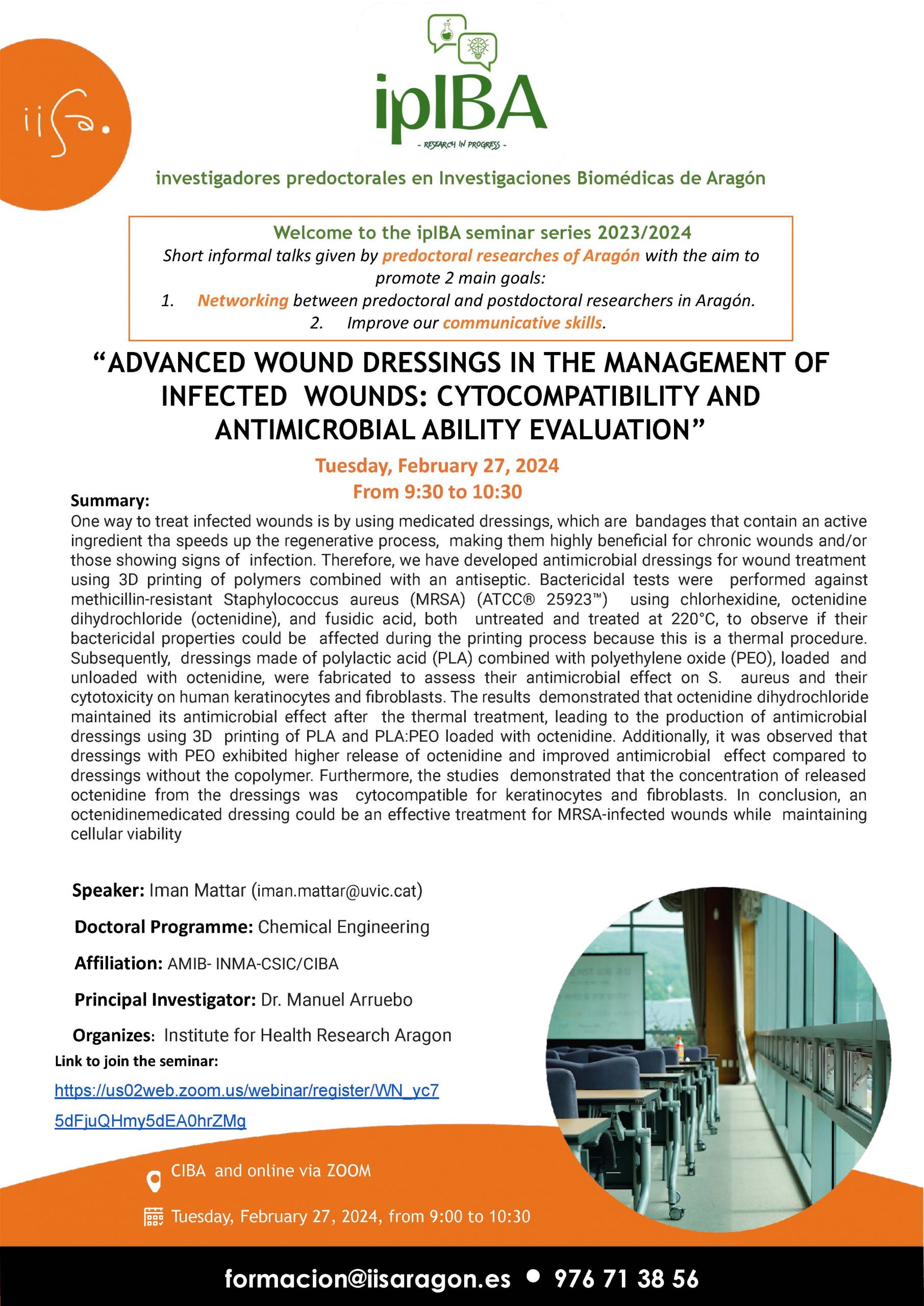
- Este evento ha pasado.
IpIBA seminar series 2023/2024 “Advanced Wound Dressings in The Management of Infected Wounds: Cytocompatibility and Antimicrobial Ability Evaluation»

IpIBA seminar series 2023/2024 “Advanced Wound Dressings in The Management of Infected Wounds: Cytocompatibility and Antimicrobial Ability Evaluation”
Tuesday, February 27, 2024
From 9:30 to 10:30
One way to treat infected wounds is by using medicated dressings, which are bandages that contain an active ingredient tha speeds up the regenerative process, making them highly beneficial for chronic wounds and/or those showing signs of infection. Therefore, we have developed antimicrobial dressings for wound treatment using 3D printing of polymers combined with an antiseptic. Bactericidal tests were performed against methicillin-resistant Staphylococcus aureus (MRSA) (ATCC® 25923™) using chlorhexidine, octenidine dihydrochloride (octenidine), and fusidic acid, both untreated and treated at 220°C, to observe if their bactericidal properties could be affected during the printing process because this is a thermal procedure.
Subsequently, dressings made of polylactic acid (PLA) combined with polyethylene oxide (PEO), loaded and unloaded with octenidine, were fabricated to assess their antimicrobial effect on S. aureus and their cytotoxicity on human keratinocytes and fibroblasts. The results demonstrated that octenidine dihydrochloride maintained its antimicrobial effect after the thermal treatment, leading to the production of antimicrobial dressings using 3D printing of PLA and PLA:PEO loaded with octenidine. Additionally, it was observed that dressings with PEO exhibited higher release of octenidine and improved antimicrobial effect compared to dressings without the copolymer. Furthermore, the studies demonstrated that the concentration of released octenidine from the dressings was cytocompatible for keratinocytes and fibroblasts.
In conclusion, an octenidinemedicated dressing could be an effective treatment for MRSA-infected wounds while maintaining cellular viability.
Speaker: Iman Mattar

Place:
CIBA and online via ZOOM.